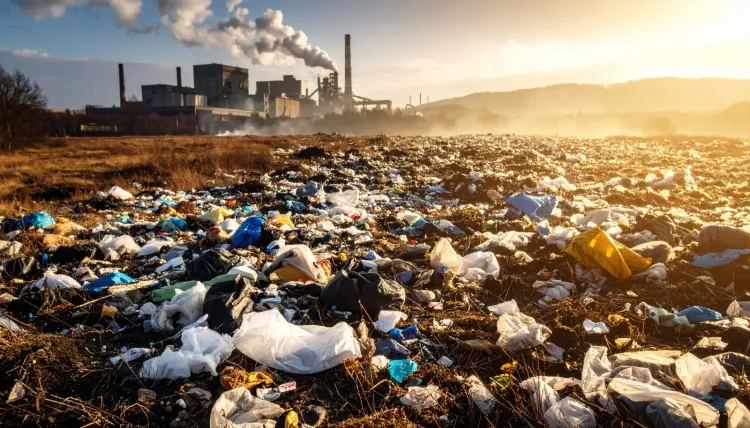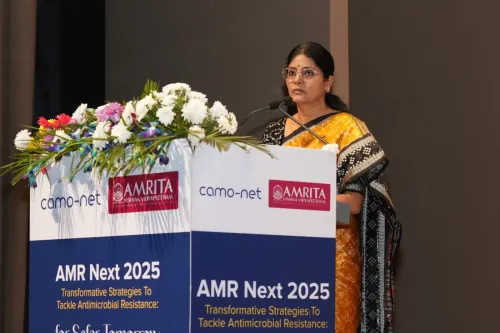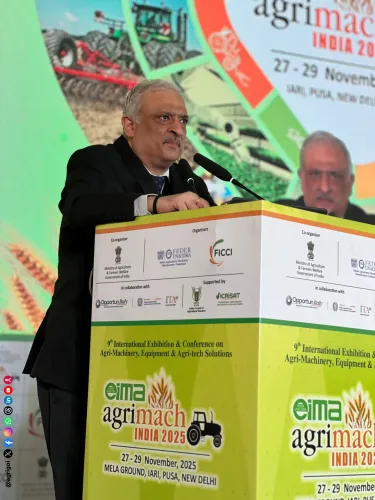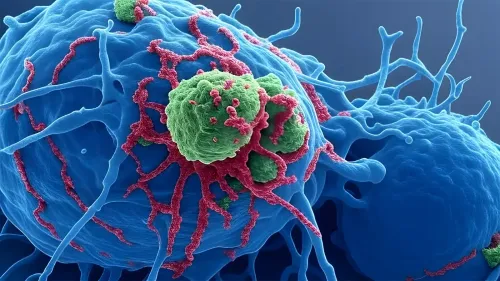Is Plastic Pollution a Hidden Hazard to Our Health?

Synopsis
Key Takeaways
- Plastic pollution is a significant health threat.
- Health impacts arise throughout the plastic lifecycle.
- Microplastics have been found in human tissues.
- UN member states are working on a Global Plastics Treaty.
- Evidence-based policies can mitigate plastic harms.
New Delhi, Aug 4 (NationPress) In light of the upcoming UN treaty on plastics, a recent report published in The Lancet has raised alarming concerns regarding plastic pollution, labeling it an underestimated threat to the health of both the planet and its inhabitants that demands urgent attention.
Authored by a team of global experts, the report synthesizes current data on the health impacts of plastics, which include microplastics and chemical components.
According to Prof Philip J Landrigan, the report's lead author from Boston College, “Plastics represent a significant and escalating risk to both human and environmental health, contributing to diseases and fatalities from infancy through old age, with annual health-related economic losses surpassing $1.5 trillion.”
The findings indicate that the health risks associated with plastics arise throughout their entire lifecycle—during production, usage, and disposal. The report highlights that emissions from plastic manufacturing release harmful substances, including particulate matter (PM2.5), sulfur dioxide, and nitrogen oxides, exposing factory workers to toxic chemicals.
Experts from the US, Switzerland, Germany, and Australia emphasized the need for improved transparency regarding the chemicals in plastics, their production quantities, applications, and known or potential health risks.
“Numerous plastic chemicals are linked to various health consequences at all life stages,” the experts noted.
The report also reveals that microplastics have been discovered in various human tissues and bodily fluids. While more research is necessary to fully understand the health implications, the report advocates for a precautionary approach.
Approximately 57% of improperly managed plastic waste is incinerated openly, contributing significantly to air pollution in low- and middle-income nations.
Furthermore, plastic waste can create breeding grounds for mosquitoes and foster the proliferation of microorganisms, which may lead to the spread of vector-borne diseases and antimicrobial resistance.
The experts have urged for a heightened focus on the health effects associated with plastic pollution.
The report warns that, if unaddressed, plastic production is projected to nearly triple between 2019 and 2060.
Landrigan emphasized that while “the worsening effects of plastics are not unavoidable,” they can be effectively managed through evidence-based, transparent, and well-funded legislation and policies.
In a concerted effort to tackle global plastic-related issues, UN member states unanimously committed in 2022 to create a comprehensive, legally binding framework on plastic pollution, known as the Global Plastics Treaty, which will address the entire plastic lifecycle. A meeting is set to take place tomorrow.
In addition, the experts announced the launch of a new initiative to monitor the impacts of plastics: the Lancet Countdown on Health and Plastics.
“The Lancet Countdown on Health and Plastics will define and monitor various indicators that illustrate the impact of plastics and their chemicals on human health throughout the plastic lifecycle. The first report on these indicators is anticipated by mid-2026,” Landrigan stated.









